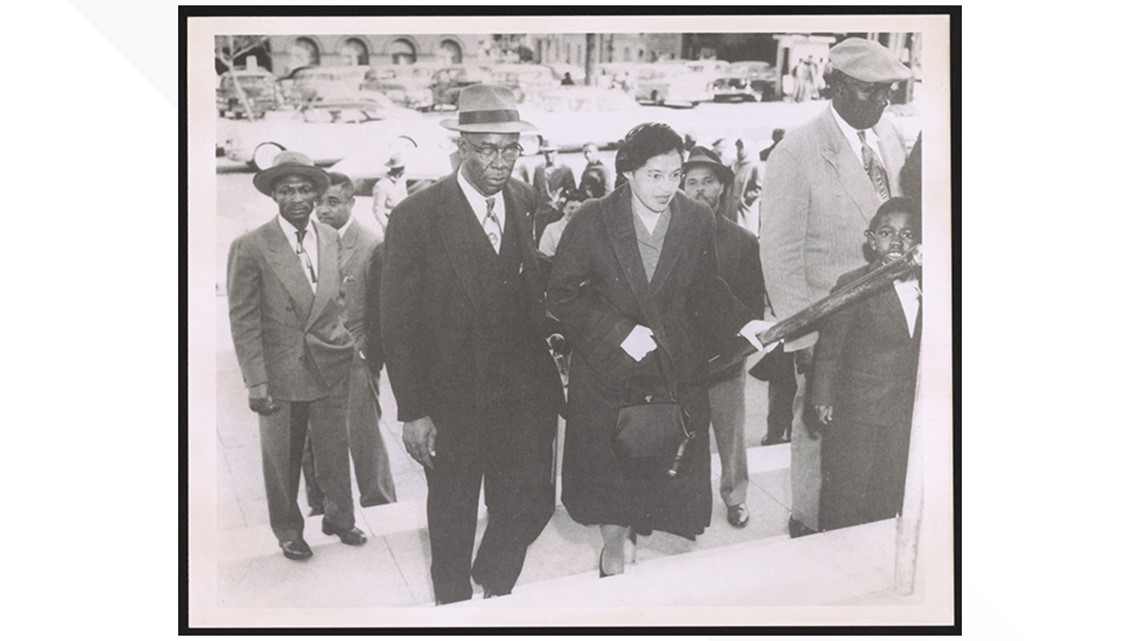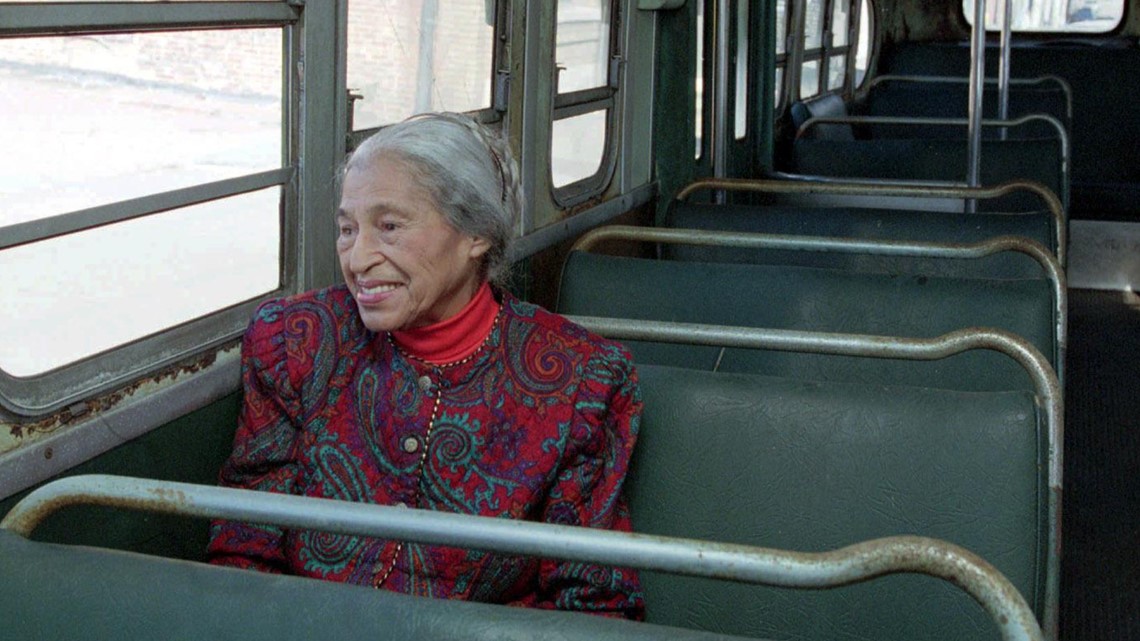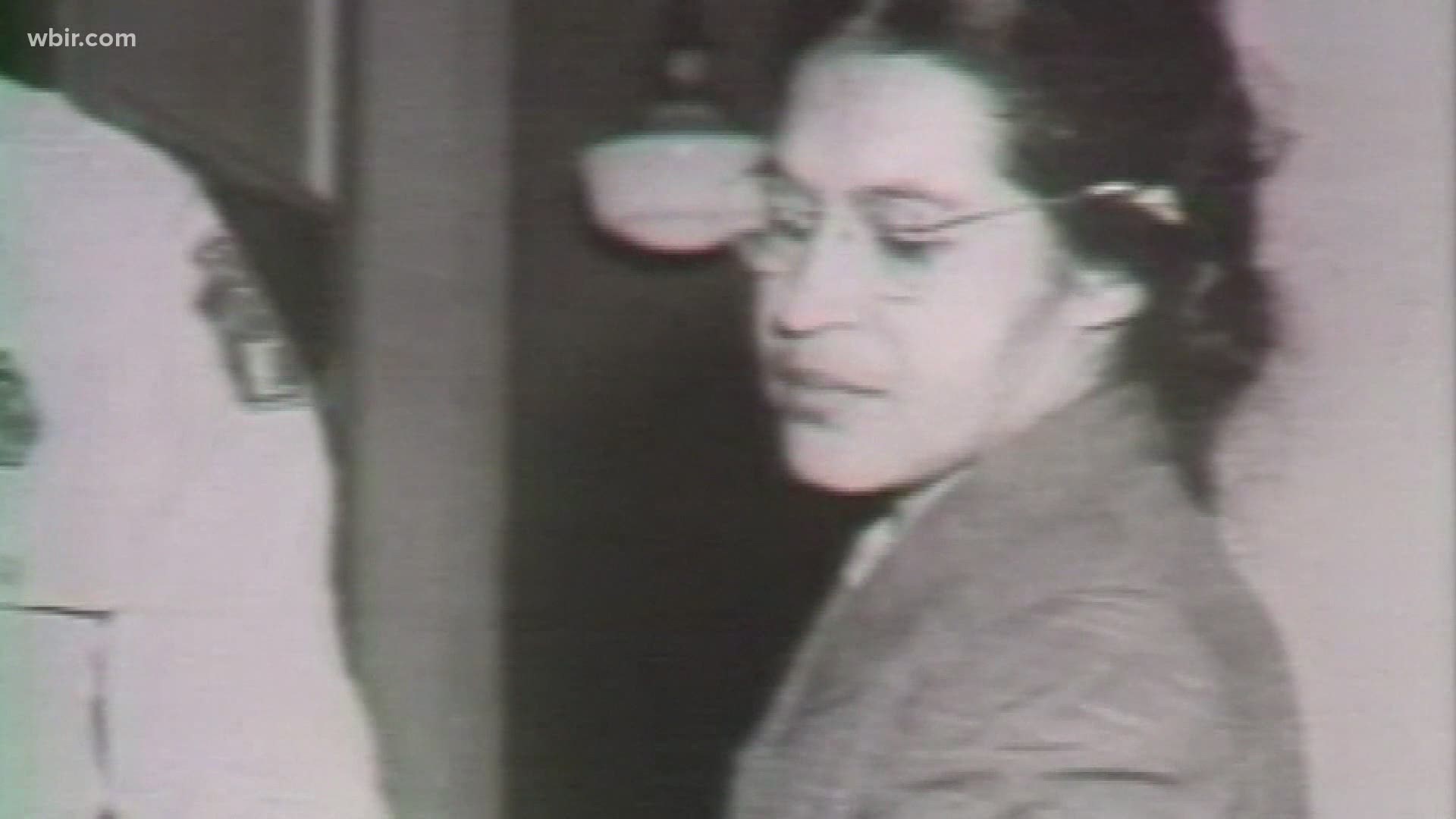DALLAS — This week Dallas Area Rapid Transit (DART) is honoring the life and legacy of Rosa Parks by reserving a seat at the front of each of its 692 buses in its fleet.
Dec. 1 is the 66th anniversary of when Parks was arrested in Montgomery, Alabama for refusing to give up her bus seat to make room for a white passenger on a segregated bus.
At the time, public buses in the city were segregated per Montgomery city law, and the first 10 seats were permanently reserved for white passengers.
DART and its Board of Directors supported House Bill 3481 which officially designated Dec. 1 as Rosa Parks Day in Texas, DART said in a news release.
"Her act of defiance in the face of an unjust law led to the Montgomery bus boycott, which lasted several months and led to both the desegregation of public transportation in our country and the beginning of the modern civil rights movement," DART said in a news release.


DART operates local and express bus routes in many cities in Dallas County, including Addison, Carrollton, Cockrell Hill, Dallas, Irving, Garland, Plano and Highland Park.
Parks' arrest became a rallying point for fellow civil rights leaders, as Parks was active in the local chapter of the National Association for the Advancement of Colored People and was the secretary to the chapter president. For 381 days after her arrest, the Black community organized the peaceful Montgomery Bus Boycott. Martin Luther King Jr., then a 26-year-old minister, became its leader.


The Rosa Parks Papers at the Library of Congress include notes and interviews documenting her thoughts of her arrest on Dec. 1, 1955 and the Montgomery Bus Boycott.
In one note, she writes: "I had been pushed around (sic) all my life and felt at this moment that I couldn't take it anymore."
In another, she writes, "let us look at Jim Crow for the criminal he is and what he had done to one life multiplied millions of times over these United States and the world."
Parks' quiet act of defiance sparked a movement locally in Montgomery, but it also resonated around the nation and the world. In the decades since, she's become revered as the "Mother of the Civil Rights Movement."



